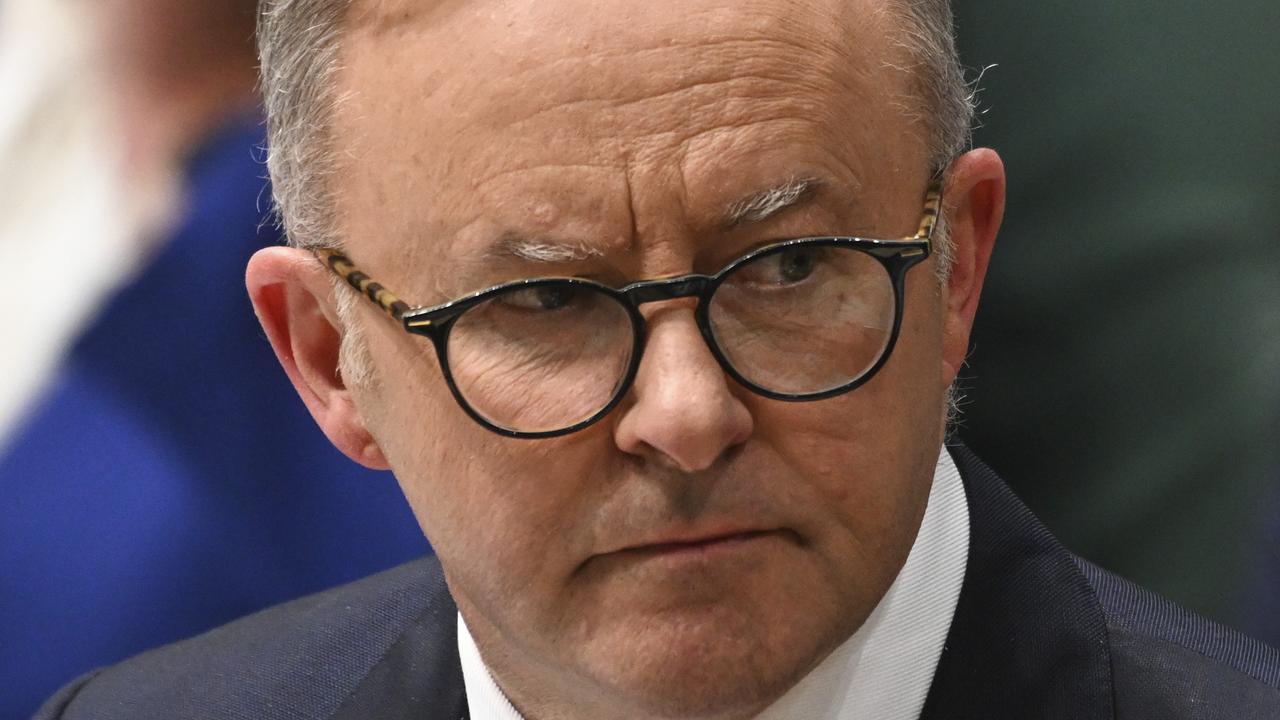The Commonwealth will impose price controls on coal and gas and give $1.5bn to the states and territories to spend on power bill rebates under a deal struck by national cabinet.
Anthony Albanese announced the emergency energy policy from Kirribilli House in Sydney – where he is isolating with Covid-19 – shortly after his virtual meeting with the premiers and chief ministers wrapped up on Friday.
Federal parliament will be recalled next week to deal with the necessary legislation.
The Prime Minister again ruled out the prospect of “cash handouts” for Australians, saying Treasury had advised this would risk further fuelling inflation.
The treasurers in each jurisdiction will instead decide how to use their share of the $1.5bn to reduce energy bills for households and small businesses.
“The appropriate way to pay it is through state governments because that is how you take money off peoples’ bills rather than provide cash payments; that is important so that you have a deflationary impact rather than inflationary,” Mr Albanese said.
The proposal is expected to result in government rebates for power retailers to help them lower the bills they send out.
Mr Albanese said the support would flow through to people on income support and welfare payments, with the state and territory treasurers to finalise their respective relief packages by early next year.
“There will be a report back to the national cabinet early next year before the support commences, which is envisaged to be in the second quarter of 2023,” Mr Albanese said.
This means eligible Australians are likely to have to wait until April or later to receive financial relief.
The expected rebates form one element of a plan which Mr Albanese said national cabinet had agreed upon to “put downward pressure” on soaring energy prices.
Treasury in the October budget forecast a 56 per cent rise in electricity prices and a 44 per cent increase in gas prices for households and businesses.
The Commonwealth will enforce a mandatory code of conduct for the gas industry, which will involve temporarily capping the wholesale price of gas at $12 a gigajoule for 12 months.
The Australian Competition and Consumer Commission will be responsible for monitoring and enforcing the code and will be provided extra resources to do so.
Mr Albanese said the federal government will also “work with” NSW and Queensland to introduce a cap on the spot price of coal, limiting it to $125 per tonne.
The idea is that the cap on the prices of gas and coal will make it cheaper for generators to purchase supplies, in turn lowering power bills.
While gas controls are within the federal government’s remit, the responsibility for capping the price of coal will fall to the two biggest coal producing states.
Mr Albanese said the Commonwealth would provide financial support to NSW should the coal price cap affect the cost of production, acknowledging the state’s concerns about the effect on coal powered generators, which are contractually bound to pay more than $125 per tonne.
NSW Energy Minister Matt Kean had said the NSW government would not be seeking direct compensation for lost revenue due to coal price caps but he had asked for financial assistance for families and businesses.
The government has said the gas and coal measures will reduce the forecast electricity price increases of 36 per cent in 2023-24 to 23 per cent, preventing a $230 power bill increase which the average Australian household would have seen if these actions were not taken.
Australian Energy Regulator chair Clare Savage briefed national cabinet on Friday, telling the meeting there had already been downward pressure on energy prices since the federal government said it would take action.
Friday’s announcement comes after Energy Minister Chris Bowen met with his state and territory counterparts to agree on a plan for a new capacity mechanism.
The mechanism will allow governments to pay for electricity to ensure there is enough supply in the grid, but it will exclude gas and coal companies in favour of renewables.
Mr Bowen on Friday morning reasserted the federal government wouldn’t provide cash handouts to Australians to help them pay for their energy bills to avoid further fuelling inflation.
“Australians didn’t decide to invade Ukraine, Australians didn’t decide the price of coal and gas will spike,” he told ABC Radio.
“We won’t do anything to fuel inflation … So anything we do will be seeking to reduce the bills before they arrive at the letterbox of consumers.”
Deputy Opposition Leader Sussan Ley said earlier on Friday any reduction in power bills would come too late for families struggling to stay afloat this Christmas.
“All Australians want for Christmas is a reduction in their power bills. But here we are, on a Friday leading into Christmas and it seems so chaotic between the federal and state governments with no real plan,” she told Seven.
“Please Prime Minister, come out of today’s meeting – this is the test – give us the plan that gives us the confidence that this is not one of your broken promises.”



















